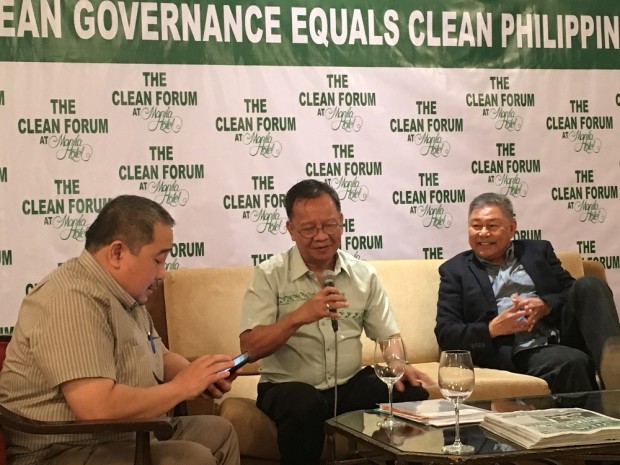Drug-free Philippines possible under Duterte, says PDEA chief
It is possible to completely get rid of illegal drugs in the country by 2022 under the watch of President Rodrigo Duterte, according the Philippine Drug Enforcement Agency (PDEA).
In a forum in Manila on Tuesday, PDEA Dir. Gen. Isidro Lapena said Duterte’s initiative have pushed all concerned government agencies to triple their efforts in curbing the drug menace, noting that the government’s accomplishment in the antidrug campaign “has gone to a level that is more than five years of the previous administration.”
“The vision of a drug-free Philippines is doable… Yes, it is possible. President Duterte said the drug problem must be stopped by all means allowed by law. It must be relentless; it must be sustained. The way things are being done by all agencies, they are much involved mainly because the President is taking the lead,” Lapena said during the “Clean Forum” at Manila Hotel.
Under the law, PDEA is the lead agency implementing the government’s antidrug campaign. Last month, however, the Philippine National Police was ordered to suspend all its antidrug operations over the controversies surrounding the murder of South Korean businessman Jee Ick-joo inside the police headquarters in Camp Crame.
READ: PNP: War on drugs suspended, purge of bad cops on
Article continues after this advertisementBut in spite of what he called achievements in the past eight months of the Duterte administration, Lapena said there was still much work to be done, adding that an estimated 4 million active drug users can transform into a P200-billion industry.
Article continues after this advertisement“We are looking at demand reduction strategies. That’s why the drug syndicates keep on coming back, because there’s a big market out there,” he said.
“We make use of preventive education, rehabilitation and provide alternative development and livelihood programs,” Lapena added.
Lapena said the agency is eyeing to strengthen its strategies in addressing the drug problem through a community-based approach—reaching out to families through barangays and the Department of Interior and Local Government. Lapena said parents should play a more active role in educating their children on the harmful effects of substance use.
“The emphasis that I want to make is to go to the barangay and be in touch with the families. The most effective way of awareness is with the families. Kapag ma-involve natin ‘yung mga parents to educate ‘yung kanilang mga anak (When we get the parents involved in educating their children) on the ill effect of drugs, then that is the most effective way,” Lapena said, stressing the need to reactivate barangay antidrug councils and rehabilitation desks.
As to the spate of unsolved drug-related killings, Lapena said some 2,000 out of the 7,000 deaths were due to legitimate operations, while the rest were supposedly perpetrated by peddlers who wanted to silence their own. JE/rga
